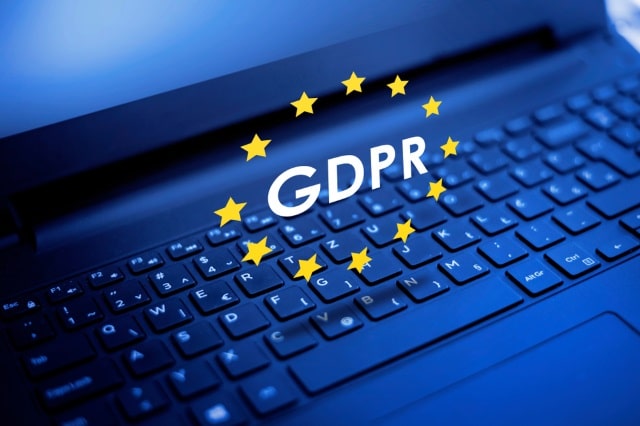
Two-thirds of UK IT leaders think GDPR has harmed consumer trust
Five years on from the introduction of the EU's General Data Protection Regulation (GDPR), 66 percent of UK IT leaders polled in a new survey from Macro4 say the regulation has made customers less willing to trust businesses with their personal information.
On its introduction the landmark legislation was hailed as raising awareness of the need to protect personal information. Indeed a year after its introduction 36 percent of adults said it made them trust organizations more with their data.

Only 18 percent of staff think hybrid working has improved productivity
New research, from UK-based IT consultancy and services provider Doherty Associates, finds that only 18 percent of workers in two key sectors think that hybrid working has substantially improved productivity.
The survey of 889 employees working in the UK capital markets and legal industries looked to uncover how the working-from-home revolution and subsequent technological adoption have impacted productivity.

US and UK are the countries most attacked by ransomware
In the 12 months from April 2022 to March 2023 the US and UK were the countries that suffered the most ransomware attacks.
However, the latest Malwarebytes ransomware report shows that the USA suffered a little over seven times more attacks in the last twelve months than the UK. It's perhaps not a coincidence that the USA's economic output, measured by gross domestic product (GDP), is also about seven times larger than the UK's.

UK telcos not ready for 'One Touch Switching'
The UK telecoms regulator Ofcom's 'One Touch Switching' initiative -- intended to make it easier for consumers to change broadband providers -- has been delayed as service providers aren't ready.
Whilst it was announced in 2021 and meant to come into force this Monday (April 3rd), One Touch Switching has now been pushed back and Ofcom has begun an enforcement program.

UK government loses hundreds of IT devices
UK government departments are losing hundreds of devices each year according to Freedom of Information (FoI) requests submitted by encrypted drive manufacturer Apricorn.
The Home Office declared 469 lost and stolen devices between September 2021 and September 2022, with the Ministry of Defence not far behind with 467 mobiles, tablets and USB devices unaccounted for.

New UK privacy laws aim to cut red tape for business
The UK's new Data Protection and Digital Information Bill is set to reduce costs and burdens for British businesses and charities, and remove barriers to international trade.
We know from when it was first brought before parliament last summer that it will also cut the number of repetitive data collection and cookie pop-ups online.

UK manufacturing in 2023: Sustainability, digitalization and the power of data
It has undoubtedly been a turbulent few years for the UK manufacturing industry. On top of the supply chain headaches caused by Brexit and the pandemic, spiraling energy prices have presented new financial challenges in recent months. All of this comes as larger, darker clouds loom overhead, with recent S&P Global/CIPS UK Manufacturing PMI data showing that the UK manufacturing industry is on the brink of a recession.
To succeed, or even just keep afloat, in this environment, it is now more important than ever for manufacturers to innovate and drive greater operational efficiency. So, what are some of the actions manufacturers need to take to be successful in 2023?

Open banking remains a closed book for most consumers
Open banking first began to roll out in 2018, following the introduction of the PSD2 legislation in the UK, but five years on new research finds that most consumers still don't understand what it is, and the vast majority don't believe that it's safe.
The study from NTT DATA shows 58 percent of UK consumers still don't understand what open banking is, while just 16 percent believe that it's completely safe.

Metaverse? Meh!
A large majority of consumers in the UK say they have never heard of or are bored by Web3 (89 percent) and the Metaverse (84 percent), according to a new study.
Research from digital agency Studio Graphene surveyed 2,000 UK adults and finds technologies that hit the market more than a decade ago have high levels of consumer understanding and use, but this drops off sharply when looking at more recent innovations.

67 percent of UK IT decision makers are concerned about supply chain issues
A new survey of UK IT decision makers from cybersecurity company WithSecure looks at global supply chain issues, with 67 percent of respondents believing that these issues will either remain the same (28 percent) or get worse (39 percent) within the next year.
As issues around inflation and supply shortages remain high in the news agenda, 43 percent believe they are very knowledgeable in their understanding of supply chain issues. However, few are confident of quick fixes to these global issues, and 60 percent of respondents believe that they will last for two years or more.

Geopolitical tensions make security precautions critical for UK business
Geopolitical tensions are on the rise around the world and global economic structures continue to evolve as a result. Political disruption and unrest can have a far-reaching impact on the rest of the globe. This impact can be seen most clearly in the ripple effects that the current ongoing Ukraine-Russia war has had on the rest of the world in terms of economic volatility, food insecurity, and dramatic price increases.
Businesses are, of course, hyper-focused on ensuring their resilience to geopolitical risk, fragmentation, and uncertainty, which according to McKinsey’s latest Economic Conditions Outlook is at the top of the agenda for CEOs. But, if businesses want to safeguard their resilience during this disruptive time, organizations will need to prioritize their security.

UK sees one case of fraud every 85 seconds
A new study finds that £95 ($105) is lost to fraud every second in the UK. This is according to analysis by fraud prevention specialist Outseer of all the reported incidents of fraud to Action Fraud -- the UK's national reporting center for fraud and cybercrime -- between 1st July 2021 to 30th June 2022.
The data shows one case was reported to Action Fraud every 85 seconds and reported losses totalled over £3 billion ($3.31 billion) during the 12-month study period.

UK sees boost in AI adoption
Use of AI technology in the UK has stepped up since 2016, with 41 percent of companies adopting AI between 2016 and 2019, compared to just a fifth over six years ago.
A new study from Peak shows this puts the UK above the global average of 39 percent for this period, though it's since dropped back closer to the average, and represents an almost fourfold rise in the last ten years, compared to just 2.5 times in the US and three times in India.

PayPal backs down over Free Speech Union account
The latest development in the ongoing 'PayPal-gate' story is that the fintech giant has now reversed its decision and apologized for closing the Free Speech Union's account.
The FSU tweeted news of the decision yesterday evening following several days of people closing down their accounts and the stirring up of a political storm with questions asked in the UK parliament.

PayPal faces UK backlash over account closures
As we reported last week, PayPal has cancelled the accounts of a number of campaigning organizations in the UK, citing its Acceptable Use Policy but without providing a specific reason.
On Friday The Times reported that the fintech giant was poised to back down in the case of parents' group UsForThem, which campaigned for schools to be kept open during the pandemic.
